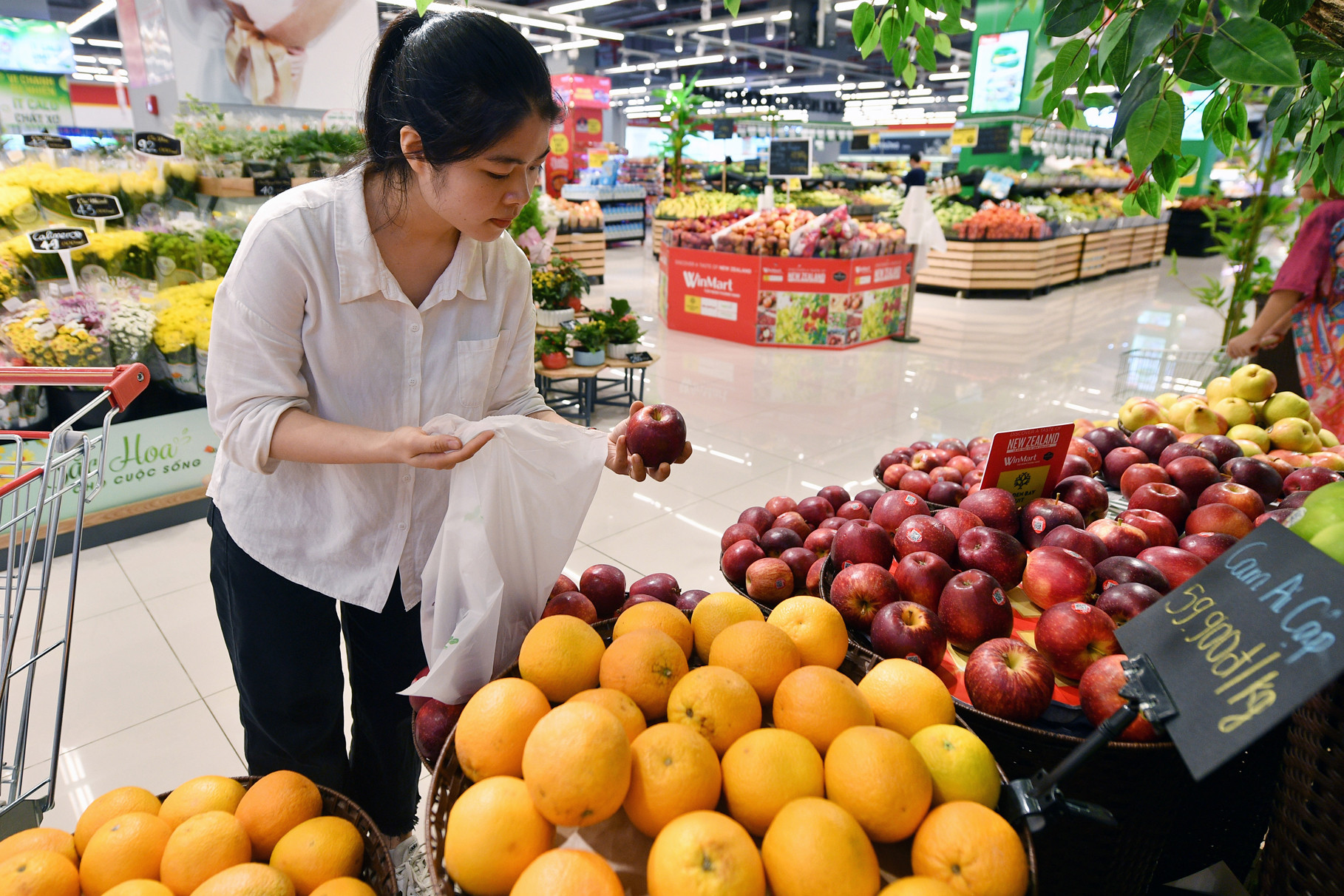
Another owner, of a chain of eateries, complains of fewer customers these days. Since the regulation on examination of drivers’ blood alcohol concentration took effect in mid-2023, his business has become stagnant.
A representative of the Vietnam Beer, Alcohol, Beverage Association (VBA) said previously the industry witnessed an average growth rate of 5-6 percent per annum. But in recent years, because of Covid-19 and the new regulation on blood alcohol concentration, there has been a decline of 5-6 percent, or even 15 percent per annum.
The policy on tightening control over drunk drivers is supported by society because this reduces traffic accidents. However, the regulation may affect a whole value chain, from farmers, producers and carriers to workers at restaurants and businesspeople.
The total retail turnover of goods and services in the first two months of the year only increased by 8.1 percent over the same period last year (the figure was +14.7 percent), and if not counting the price increases, the growth rate would be 5 percent (+10.9 percent).
Such a low growth rate is rarely seen in Vietnam, where 75 percent of the population is young people with high purchasing power.
Thai newspapers several days ago reported that Thailand was reconsidering a draft law on controlling blood alcohol concentration. The draft has strict regulations on the punishment of drunken drivers, but many people have suggested amendments in order to develop tourism.
In the latest move, the draft regulations were rewritten. Any kind of drink with an alcohol concentration of no more than 0.5 percent would be considered a non-alcoholic drink.
Textile and garment companies are also facing difficulties as supply chains have been disrupted, while global demand has dropped and Bangladesh has emerged as a large producer thanks to cheaper labor costs.
A large garment company in HCM City, which in its golden days ran five factories with 4,000 workers, has laid off the majority of workers. It is struggling with just dozens of workers now.
Analysts say total demand is on the decrease while outsourcing prices have decreased by 30-50 percent. The textile and garment export turnover in 2023 was $40.3 billion, lower than the $44.4 billion in 2022.
Textiles and garments is a labor-intensive industry with 3 million workers and 70 percent of them are women.
Despite the government’s great efforts and new policies to help businesses overcome difficulties, including Resolution 02 released earlier this year, many enterprises in different fields have had to leave the market.
In the first two months of 2024, 62,977 enterprises departed the market, up 22.5 percent over the same period last year. The number of departing enterprises was higher than the number of enterprises joining the market (41,097).
Meanwhile, most newly set up businesses (20,308), or 92 percent, are small scale, capitalized at VND0-10 billion
In 2023, investment by the non-state economic sector increased by 2.7 percent, much lower than the 14.5 percent in 2019, 3.0 percent in 2020, 7.1 percent in 2021 and 8.1 percent in 2022.
The statistics show that private Vietnamese enterprises are facing their biggest ever challenges.
While businesses are struggling, legal regulations can make the situation more serious.
Only 16 percent of enterprises in a VCCI (Vietnam Chamber of Commerce and Industry) survey in 2014 said they could predict the changes of legal regulations. The figure continued to decrease to 5 percent in 2021 and 3.42 percent in 2022.
Some analysts say that Vietnam’s technical regulations are even higher than those in developed countries, such as regulations on pollutants in health-protection food; or technical regulations requiring high compliance costs, such as Regulation 06 on fire prevention and control.
In other cases, policymakers set technical regulations, but do not specify the labs eligible for testing. As a result, goods cannot be put into circulation.
Therefore, institutional reform is believed to be the solution to help enterprises overcome their difficulties.
Lan Anh